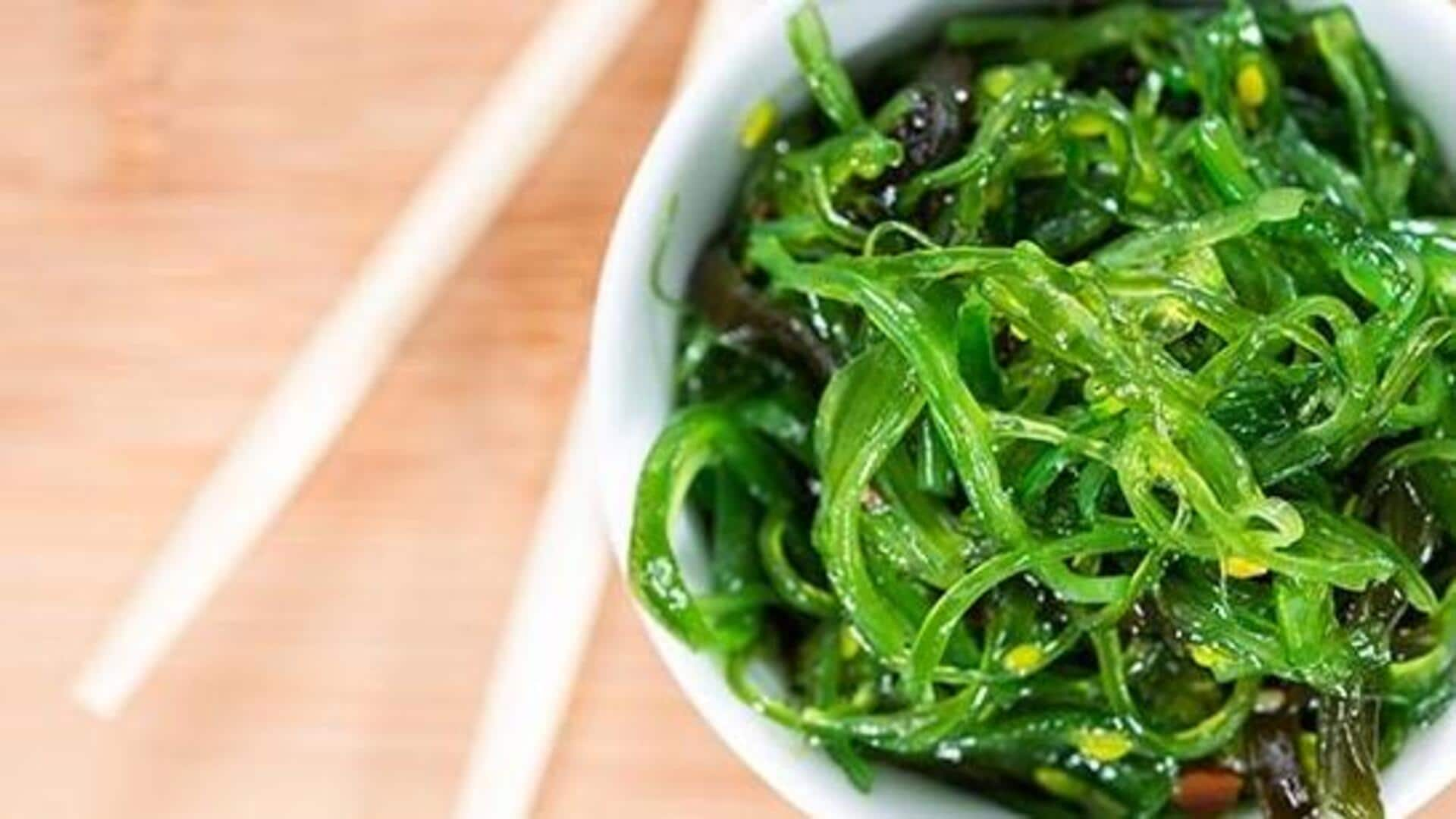
Seaweed or chlorella: Which is healthier for you?
What's the story
A deep dive into the nutritional profiles of seaweed and chlorella unveils a world of oceanic superfoods teeming with health-boosting benefits.
Both are packed with vitamins, minerals, and antioxidants, but each has its unique strengths.
Read on to discover what sets them apart and how they can add a wave of wellness to your diet.
Nutrition
Nutritional powerhouses unveiled
Each type of seaweed has a unique nutritional profile.
In general, seaweed is a rich source of iodine, crucial for healthy thyroid function, and provides vitamins A, C, E, and K.
Chlorella, a single-celled algae, is a protein powerhouse (50-60% protein by dry weight!) and uniquely offers vitamin B12, which is hard to find in plant-based foods.
Both deliver a range of minerals but vary greatly in their vitamin content.
Antioxidants
The antioxidant arena
Antioxidants are essential for fighting off harmful oxidative stress in the body.
Seaweed shines in this regard, boasting unique antioxidants.
For instance, brown algae contain fucoxanthin, a carotenoid with potential weight management benefits and the ability to enhance insulin sensitivity.
Chlorella offers a cocktail of antioxidants, with chlorophyll being a notable one.
This green pigment is often associated with detoxification processes within the body.
Protein
Protein profiles compared
For those looking for plant-based protein sources, chlorella is a high-quality choice. It contains all nine essential amino acids, making it a complete protein.
Seaweed's protein content can vary significantly depending on the type, but it generally doesn't provide as much protein per serving as chlorella.
That said, seaweed can definitely contribute to a protein-rich diet, particularly when used in combination with other sources.
Fiber
Fiber: The digestive aid
Fiber is crucial for digestive health, and both seaweed and chlorella offer significant amounts.
Seaweed is high in soluble fiber (the kind that helps control blood sugar and reduce cholesterol).
Chlorella's cell walls are indigestible unless processed, but once broken down, they serve as an excellent fiber source, promoting healthy digestion.
Sustainability
Environmental impact considerations
If you are going to consume these oceanic delicacies, do so responsibly.
Opt for sustainably harvested seaweed. By doing so, you're helping to protect the ocean's delicate ecosystems, ensuring the continued availability of this superfood for future generations.
And, when it comes to chlorella, choose a trusted brand that uses environmentally friendly cultivation methods.
This way, you can enjoy the nutritional benefits of chlorella while minimizing your carbon footprint.